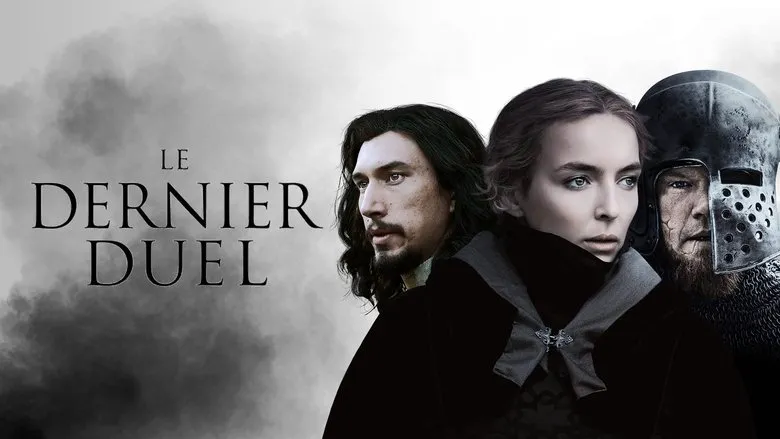Ridley Scott’s “The Last Duel”: A Medieval Mirror Reflecting Modern Truths
Ridley Scott’s “The Last Duel,” a gripping historical drama, graced the Venice Film Festival as its closing non-competitive screening. Amidst a program that seemed to have spent its initial burst of energy, and mirroring the dwindling stamina of the film’s duelists, Scott presented an unexpected narrative deeply rooted in historical truth yet startlingly relevant to our times. Initial thoughts suggested a possible rehash of “Gladiator,” merely transplanted to 14th-century France. However, “The Last Duel” deftly subverted these preconceptions.
From Historical Account to Compelling Screenplay
Adapted from Eric Jager’s “The Last Duel: A True Story of Trial by Combat in Medieval France,” the screenplay masterfully reconstructs the documented duel between Jean de Carrouges (Matt Damon) and Jacques Le Gris (Adam Driver). The original historical narrative, as expected for knights, revolves around the concept of a lady’s honor. Director Scott, however, consciously departs from overly romanticized chivalry and gleaming armor narratives. Carrouges’ wife, Marguerite (Jodie Comer), accuses Le Gris of a heinous crime, setting in motion a challenge to trial by combat—a fight to the death to defend honor.
A Shifting Perspective: Unveiling Subjective Truth
Rather than the epic landscapes and grandeur often associated with Ridley Scott, “The Last Duel” focuses on intimate dialogues and emotionally complex interactions. While initially evoking the feel of a romantic drama reminiscent of “First Knight,” the film takes a swift and significant turn. Intrigued by the elusive nature of truth Scott presents the ordeal through the lens of each participant, not simply within the formalized setting of testimonies before Count Pierre d’Alençon (Ben Affleck) and King Charles IV (Alex Lawther).
Echoing the narrative structure of Akira Kurosawa’s “Rashomon,” the director leverages the power of multiple perspectives, revealing the vast discrepancies in how individuals perceive and experience the same events. Carrouges is portrayed through varying lenses: a valiant warrior, a betrayed husband. Le Gris appears as a comrade in arms, a man of honor, maybe just misunderstood. Marguerite is either a faithful wife, or a mysterious figure.
The Art of Unraveling: Layered Narratives
Unfolding revelations are executed masterfully in the screenplay crafted by Ben Affleck, Matt Damon, and Nicole Holofcener. The narrative pivot ensures a newfound sincerity is attributed to both sensuality and violence. False pretenses and rash assumptions act as propellant throughout “The Last Duel”, preying upon the audience’s ego. Viewpts advance by clearing the narrator or clarifying some gaps of other character’s explanations presented beforehand. “Beauty is in the eye of the beholder,” so are lust, passion, reverence, and resentment.
A Timeless Parable on Truth and Perception
The story, told in three acts culminating in the duel, offers a powerful reflection on bodily autonomy, and sexual violence as well as consent. Unlike sloganeering manifestos, “The Last Duel” offers a nuanced approach towards the essence of perception, exploring differences in consciousness and upbringing. This fragmentation becomes the cornerstone itself of “post-truth”. Opinion against opinion.
The ambivalence within the narrative stems not only from the voices that we heard but alos with which order those are played making it easy to be charmed/swayed by Jacques Le Gris through his passionate words. Driver demonstrates with abuse may have a handsome and appealing face.
Echoes of the Past: Contemporary Resonance
The explorations here within the human conditions has echoes that reminds us of Affleck and Damon’s work in “Good Will Hunting” back in 1997. While Scott’s recent works have drawn certain criticisms his insertion and conversation (eternal, divine) within contemporary trials seamlessly integrates within it. Scott is the father who created “Alien” featuring one of cinemas most feminist franchises (The threat of the invasion of Ellen Ripley with with sexual violence being its underlining meaning). In “The Duellists” Scott explores battle between his duels.
These themes come together towards this concept of honor during this era. The transformation of stories into classic parables with ethic at its core transforms it.
Stellar Performances Illuminate Complex Characters
With behavioral and its drama carefully articulated, its roles demands powerful performances. Damon does show an exemplary to his role/character in showing that there are depths of the warrior and the husband that he seemingly does well in. Comer hides the secrets of Marquerite appropriately. Drivers demonstrates the range that he has as an actor.
By rethinking what heroism actually is, Scott puts an emphasis with its male virtue. Declarations/actions and dedications (for wife/for king!) comes from their own projecting ego. Power comes from this truth.